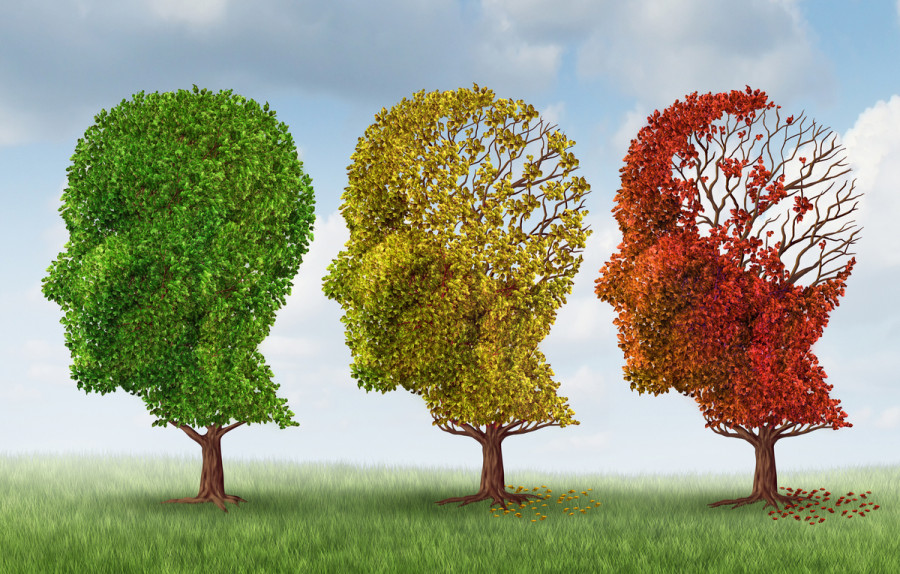Columns
Mental health beyond individual responsibility
The need for structural transformation and increased investment cannot be overstated.
Anjam Singh
In recent years, the discussion around mental health has gained mainstream attention all over the world, including in Nepal. Along with it, there is a growing sense of acceptance and empathy towards those who struggle with mental health issues and illnesses. This sense of acceptance and solidarity has also given courage to many people to speak up and share their struggles, as is evident in many personal experiences shared on public platforms and social media.
While the mainstreaming of mental health discussion is essential, the focus has mostly been on mental health as an individual issue; therefore, the resolutions have also revolved around removing the stigma against seeking help and therapies. The discussion has rarely centred on the larger structures—the societal norms, values, and institutions that have been the main culprits behind inducing and exacerbating mental health problems such as maladjustment, chronic stress, and anxiety experienced by an increasing number of people.
Childhood is considered to be the most crucial and formative period of a person’s life. However, data suggests that a significant fraction of children in Nepal live with severe trauma and stressors that have a lasting impact on their mental health throughout their adult life. The data collected by the NGO Child Workers in Nepal (CWIN) from January-June 2019 shows that out of a total of 242 reported cases of rape and abuse in the country, 107 were concerning children under 18; 101 (73 girls and eight boys) were cases of child sexual abuse and bullying. These reported instances are only the tip of the iceberg. The majority of child sexual abuse cases remain unrecognised and unreported and are often perpetrated by people the victims are familiar with—family members, neighbours or teachers. Recognising and working through these experiences of abuse is still largely inconceivable in most families. In the absence of a proper support system, the children end up carrying unhealed trauma throughout their adult life that results in chronic mental distress and disorders.
Likewise, there is an excessive pressure from families and schools on young children to perform well academically, which mainly translates to getting good grades. The children undergo criticism, comparison and competition at an age when they are the most vulnerable. The seeds of mental health problems, such as low self-esteem and anxiety, are planted in primary education institutions. In many cases, the schools are ill-equipped to understand or provide support for the psychological and emotional needs of children.
Moreover, the mental health effects of the socio-economic marginalisation and discrimination that structures Nepali society rarely gets discussed. The systemic marginalisation or violence based on gender, caste, sexuality and disability may have a debilitating mental health effect. In addition, the insecurity of income or employment, particularly for people dependent on daily wage, is also one of the major sources of chronic mental distress. While advocacy around these issues demands structural changes, the mental health aspect often gets sidelined.
Despite the scale and complexity of the mental health problems, our current system is not equipped to deal with it at all. According to a report prepared by the WHO in 2007, the budget allocated for mental health comes to around 0.04 percent of the total budget. Mental health services are concentrated in big cities, and only seven district hospitals provide mental health services. Moreover, only 0.22 psychiatrists and 0.06 psychologists are available for every 100,000 persons.
Society also makes it more difficult for people already living with mental health issues and illnesses to recover and live in a dignified manner. The absence of support systems at the workplace or outside, and the lack of support and understanding in relationships makes it difficult for people and pushes them into further isolation.
Self-help books often tell us that our mind and thought patterns are the major cause of our misery. We are told that we have the power to change how we feel. But there is only so much the mind can do. It seems unfair to put the onus of change entirely on individuals without talking about transforming the world that is responsible for creating the mess in the first place. No amount of therapy, medications, or working on the self will be adequate if the triggers of mental distress are still found in the environment; it makes it difficult for people to experience a sustainable change in the state of their mental health.
We need to talk about mental health beyond personal change. This in no way implies that one need not take individual responsibility. But there should be proper systems in place to enable individuals to take personal responsibility. Mental health betterment needs to emerge as a social movement. And, like any social movement, we need to identify and address the broader structural factors that have been perpetuating this health epidemic.
The discussion on mental health should be normalised. More importantly, mental health services should be mainstreamed into the general healthcare system and should be made accessible to all sections of society. Along with that, effective and affordable treatment at all levels is a must; this necessitates more investment. Schools and workplaces also need to have support systems available. Lastly, so that lives that could have thrived and lived meaningfully do not get lost or wasted, the need of the hour is for more empathy and opportunity.
***
What do you think?
Dear reader, we’d like to hear from you. We regularly publish letters to the editor on contemporary issues or direct responses to something the Post has recently published. Please send your letters to [email protected] with "Letter to the Editor" in the subject line. Please include your name, location, and a contact address so one of our editors can reach out to you.




 18.95°C Kathmandu
18.95°C Kathmandu















